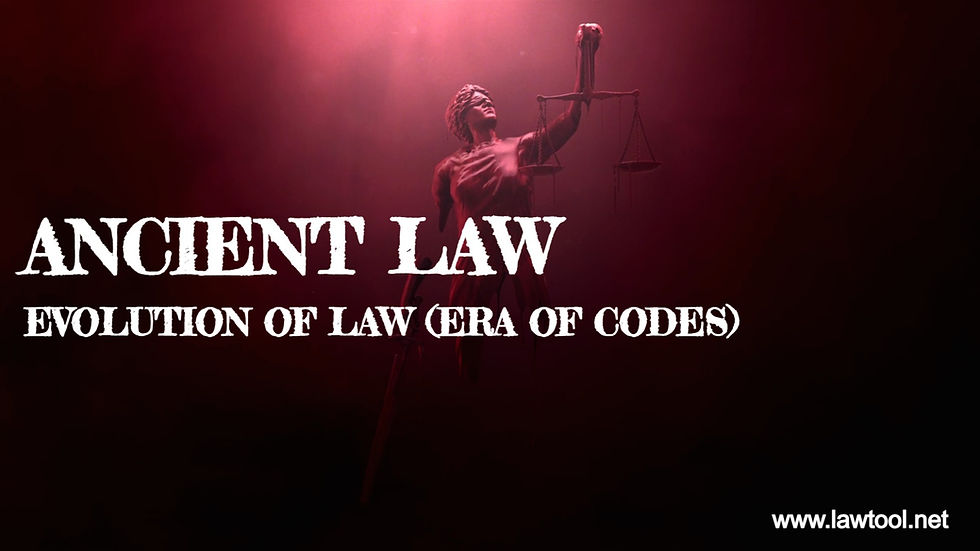EVOLUTION OF LAW (ERA OF CODES)
- www.lawtool.net
- Jun 23, 2020
- 2 min read
Updated: Jul 30, 2021
"The fate of Hindu Law, is in fact, the measure of the value of the Roman Code."Henry Maine
The first part of the history of law is spontaneous, according to Sir Henry Maine, the celebrated author of 'Ancient Law'. During this period three stages are evidenced. The 'Era of Themistes', the 'Era of customs' and the 'Era of codes'. When the king decided disputes it was believed, in the infancy of society, that his judgment was the divine inspiration. 'Themists', were 'commands'. These authoritative pronouncements-Themists-followed by community practice resulted in Customary rules. The decay in Royal power gave way to the aristocracy which claimed exclusive knowledge of the customs.This resulted in the codes. Instead of leaving the customs to the-aristocracy to decide, it was found expedient to reduce to writing these customs. Laws were engraved on tablets and published to the people, in the form of codes.
The ancient codes had gorgeous religious formalities. Still they were extremely valuable as everyone could know the rules. A timely code made, would solve many problems. If not so made, the usages would create dangerous situations. Further, the aristocracy which had the monopoly of knowing the law, could lend itself to perversions. These dangers were met by the early codes.
Codes : The Twelve Tables of Romans and the Hindu Code Manu's Dharma sastras, are taken for examination by Henry Maine. The Roman Code XII Tables appeared in 250 B.C. The Roman were Legal Theory AL 9 thus fortunate as they could protect themselves against the dangers and the privileged. Aristocracy and the debasement of national institutions. But, the Hindus were not so fortunate as the Manu code, came late in point of time. There was much degeration of the usages. Further, the priestly oligarcy of the Hindus, tampered with the customs and resorted to cruel absurdities to protect their own interests. The Hindu code is an ideal picture of what ought to be the law. It therefore did not fully reflect the rules administered then. The Hindu society therefore suffered under these circumstances. The Romans had a practical code and hence escaped these cruel absurdities. Hence, according to Henry Maine. 'The fate of the Hindu Law is, in fact, the measure of value of the Roman Code'.


Comments